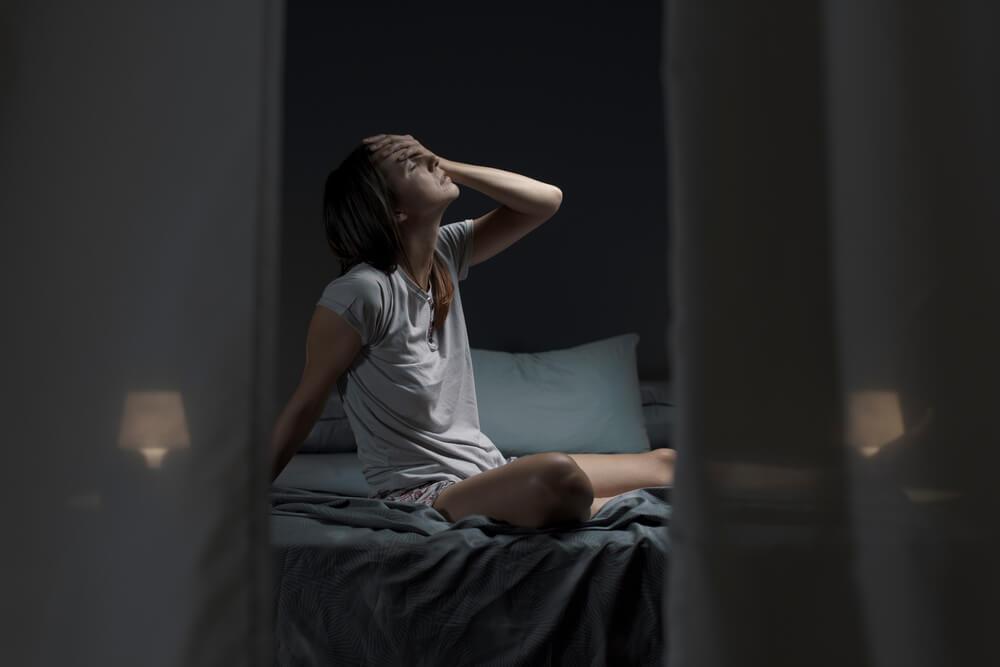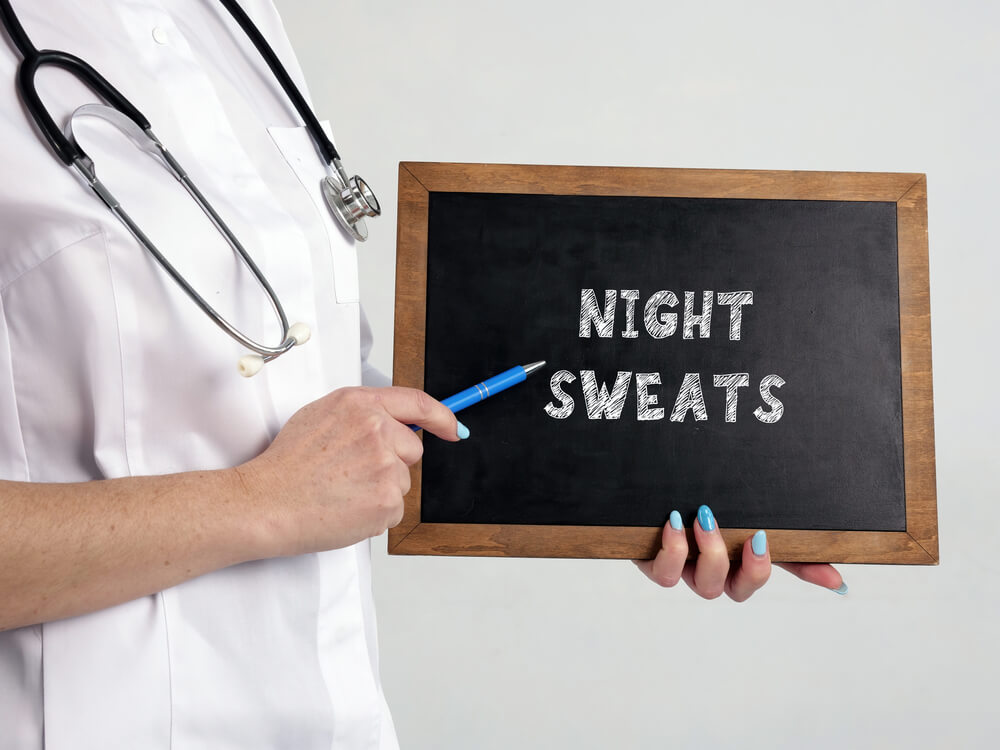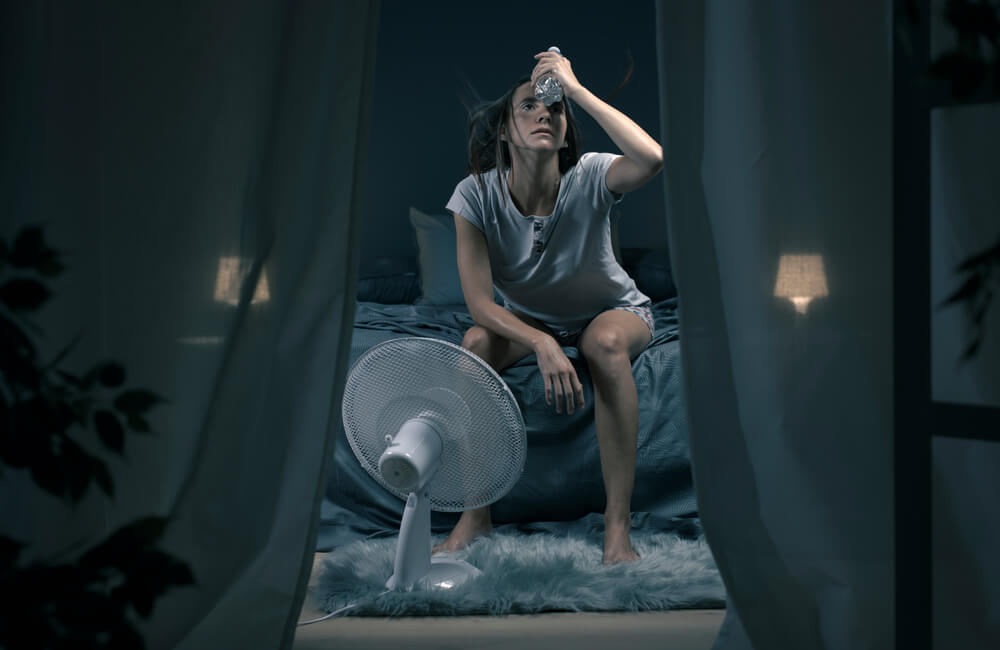Giving birth to a child is one of the most beautiful experiences for women and their partners. However, it can be overwhelming due to the numerous physical and mental challenges that are awaiting. One of those is definitely postpartum night sweats, which are extremely common for many mothers. It is understandable if they make you frustrated and uncomfortable as they can disrupt your sleep and leave you feeling drained and exhausted during the day. Naturally, that creates a chain of other problems, such as the inability to complete your daily tasks and care for the newborn, and may even worsen your health.
If you are wondering what causes postpartum sweating, you are not alone. At our clinic, we know that nothing is more precious than the health of you and your little one. Therefore, we do our best to support new mothers and provide them with top-notch maternity care. From prenatal checkups to postpartum support, you can count on us. We invite you to meet our team and see for yourself! Being a new mother can be challenging, and you do not need to go through it without the support of others. So, whether you’re experiencing postpartum night sweats or simply want to be prepared, keep reading to learn more.
Postpartum Night Sweats – What Are They?
As you have probably heard before, many new mothers encounter the usual phenomenon of postpartum night sweats. They are characterized by intense sweating, which frequently reaches the point of soaking through clothes or sleepwear. These night sweats often start the first few weeks after giving birth, although they can last for several months. This usually happens due to changes in hormones after pregnancy. During those nine months, the body creates large amounts of estrogen and progesterone, but levels of the two hormones sharply decline after giving birth. The body may react to this abrupt reduction by developing an excessive amount of sweat.
Breastfeeding night sweats are also common, and they are caused by the same issue – hormonal shifts. When a woman breastfeeds, her body produces a hormone called oxytocin, which might cause light sweating. Postpartum sweats can also be provoked by the physical demands of nursing, such as increased metabolic rate and fluid consumption.
It is important to remember that although challenging at times, night sweats after pregnancy are normal and are usually not a cause for concern. However, if they are unbearable and continue for a prolonged period, we urge you to contact your doctor. Sometimes, they can also be a symptom of an underlying disease.
Symptoms

Postpartum night sweats can vary when it comes to their severity and duration. They usually show up in the first few weeks after delivery. If you think you have postpartum night sweats, you might experience these symptoms as well:
- Excessive perspiration during sleep
- Chills and shivering
- Being wet throughout the night
- Anxiety
- Heart palpitations
- Fatigue and exhaustion
Breastfeeding night sweats are also one of the common symptoms, and this happens due to hormonal shifts. Mothers may experience increased hormones that can make them sweat, especially in the first few weeks following childbirth. In addition, hot flashes during the postpartum period may result in nocturnal sweats and discomfort.
Causes
Night sweats after pregnancy are a body’sbody’s normal physiological reaction to such changes. Some of the most typical reasons for postpartum sweating include the following:
- Hormonal changes – As mentioned previously, this is one of the most common factors regarding postpartum night sweats. Hormone levels after pregnancy are disrupted due to a sudden drop in estrogen and progesterone, which can result in severe sweating.
- Stress and anxiety – These two can also be to blame. Your body creates a “fight or flight” reaction in stressful situations, ending in perspiration.
- Infection or disease – Sometimes, postpartum night sweats may indicate a disease or infection. Make sure to get medical help if you have symptoms such as discomfort, fever, or chills.
- Increased metabolism – The body’s metabolic rate increases after giving birth, which might cause sweating. During this period, it is normal to be hungrier and consume more calories than usual. Breastfeeding night sweats are particularly usual during this change.
As you may know, postpartum sweating is a normal and common occurrence for many women, and it is usually not concerning. However, if you experience severe or prolonged sweating or other accompanying symptoms, seeking medical attention to rule out any underlying conditions is essential.
Coping With Postpartum Sweating
Although this issue is a temporary one, it can still be annoying to deal with. While you wait for it to pass, here are some ways to cope with it:
- Keeping cool – It is extremely helpful to keep your environment windy and cool at all times, especially during the night. Consider using a fan or air conditioning.
- Stay hydrated – Drinking plenty of fluids during the day and before going to bed is the best way to keep your body temperature at bay and avoid dehydration.
- Wear comfortable clothes – Make sure to wear breathable clothing and use bedding that can absorb moisture to help manage night sweats.
- Relaxation techniques – As mentioned previously, stress and anxiety can cause severe perspiration, so try utilizing relaxation methods like yoga, breathing exercises, or therapy.
If you tried all of these without any luck, there are still medical ways to cope with postpartum night sweats and stabilize hormone levels after pregnancy:
- Medications – In some cases, they can be treated with medications, especially if a patient’s sleep is disrupted.
- Hormone replacement therapy (HRT) – If a woman has severe symptoms because of hormonal changes, hormone replacement therapy may be advised.
- Medical interventions – Patients can undergo a sweat gland removal if nothing else helps.
When Should I Contact My Doctor?

As noted above, night sweats after pregnancy are normal, and don’tdon’t call for an appointment with a professional. However, in other circumstances, excessive sweating may be a symptom of a medical issue that has to be treated. The following are some indicators that you should visit your healthcare provider:
- Severe perspiration that lasts several weeks or is interfering with your ability to sleep and function normally during the day
- Night sweats that start suddenly after giving birth, especially if they are also paired with other signs such as fever, chills, or aches and pains
- If you have trouble breathing or chest pain
- Symptoms that are making it difficult for you to care for your baby or breastfeed
Rarely, excessive sweating may be a symptom of a more serious underlying illness, including a thyroid issue or infection. To rule out any underlying illnesses and make sure you receive the care and support you need, it’s crucial to consult a doctor if you have persistent or severe symptoms. Remember that nocturnal sweats are common and often go away independently with time. However, don’t be afraid to contact your healthcare practitioner for assistance and advice if you have worries or questions about your symptoms.


